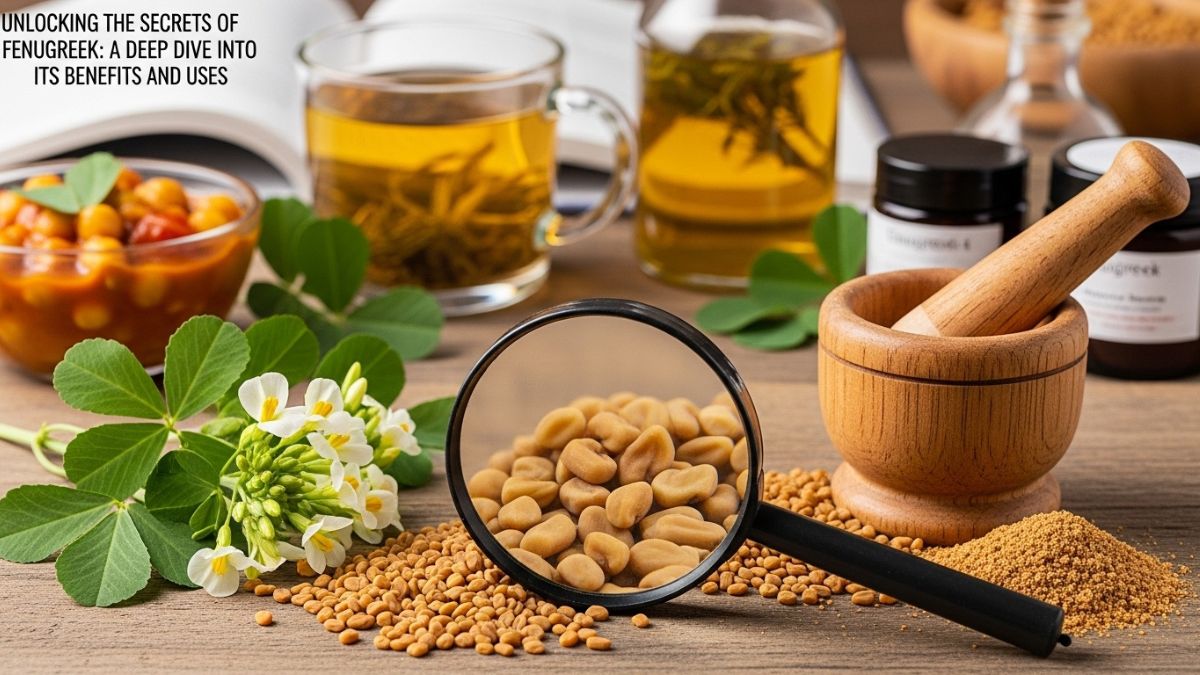Foenegriek, often known as fenugreek, is a powerhouse herb that has gained attention for its myriad benefits. This humble seed packs a punch when it comes to nutrition and wellness, making it a staple in kitchens and medicine cabinets around the world. But what exactly makes foenegriek so special? From its rich history to its versatile uses in cooking and health, this exploration will uncover everything you need to know about this remarkable herb. Whether you’re curious about how it can enhance your dishes or improve your well-being, there’s something here for everyone. Let’s embark on an enlightening journey into the world of foenegriek!
The History and Origins of Foenegriek
Foenegriek, known as fenugreek in English, has a rich history that dates back thousands of years. This herb is native to the Mediterranean region and parts of Asia. Ancient Egyptians utilized foenegriek for its medicinal properties and even included it in their embalming processes.
The Greeks and Romans also recognized its value, often using it as both a culinary spice and a treatment for various ailments. As trade routes expanded, so did the popularity of foenegriek across Europe and Asia.
In India, foenegriek holds significant cultural importance. It’s an essential ingredient in many traditional dishes and Ayurvedic medicine. Its seeds are used not only for flavor but also as remedies for digestive issues.
This humble plant’s journey through history illustrates its versatility and enduring appeal across different cultures worldwide.
Nutritional Benefits of Foenegriek
Foenegriek, often known as fenugreek, packs a nutritional punch. This tiny seed is rich in protein and fiber, making it an excellent choice for those looking to enhance their diet.
It contains essential vitamins like A, C, and several B vitamins that play vital roles in maintaining overall health. These nutrients support immune function and energy metabolism.
Minerals such as iron, magnesium, and potassium are also abundant in foenegriek. Iron helps boost hemoglobin levels while magnesium aids muscle function and stress reduction.
One standout component is the presence of antioxidants. These compounds help combat oxidative stress in the body.
Additionally, foenegriek’s high fiber content can promote digestive health by regulating bowel movements. Incorporating this superfood into your meals can contribute positively to your nutritional intake.
Medicinal Uses of Foenegriek
Foenegriek, or fenugreek, has been celebrated for its medicinal properties across cultures. This powerhouse herb is rich in antioxidants, which help combat oxidative stress in the body.
One of its most notable uses is for digestive health. Foenegriek can soothe an upset stomach and alleviate symptoms like bloating and gas. Its high fiber content aids digestion and promotes regularity.
Additionally, foenegriek may support blood sugar regulation. Some studies suggest it can improve insulin sensitivity and lower blood glucose levels, making it a potential ally for those managing diabetes.
Women often turn to foenegriek for menstrual relief. It contains phytoestrogens that might help ease cramps and balance hormones during cycles.
Moreover, foenegriek’s anti-inflammatory properties contribute to overall wellness by reducing inflammation in the body. This makes it a valuable addition to herbal remedies aimed at various ailments.
Culinary Uses and Recipes with Foenegriek
Foenegriek, also known as fenugreek, adds a distinctive flavor to dishes. Its slightly nutty and bittersweet taste makes it a versatile ingredient in various cuisines.
In Indian cooking, foenegriek is often used in spice blends like garam masala. It enhances curries and lentil dishes with its unique aroma. You can also sauté the leaves with garlic for a flavorful side dish.
For those exploring Middle Eastern flavors, adding toasted foenegriek seeds to salads or dips elevates the experience. They bring an unexpected crunch that complements creamy textures beautifully.
Baking enthusiasts can experiment by incorporating foenegriek powder into bread recipes for added depth of flavor. A pinch can transform ordinary dough into something extraordinary.
If you’re feeling adventurous, try making homemade foenegriek tea by steeping the seeds in hot water. This soothing beverage carries numerous health benefits while tantalizing your taste buds.
How to Incorporate Foenegriek into Your Daily Routine
Incorporating foenegriek into your daily routine can be both simple and enjoyable. Start by adding it to smoothies for a nutritious boost. Just a teaspoon of ground foenegriek seeds can enhance the flavor while packing in health benefits.
You can also sprinkle it onto salads or yogurt. This adds a unique taste and crunch, making your meals more exciting.
For those who enjoy cooking, try incorporating whole seeds into curries or stews. They release their earthy aroma as they cook, enriching your dishes.
Another option is to brew foenegriek tea. Soak a teaspoon of seeds in hot water for about 10 minutes—this makes a soothing drink packed with antioxidants.
Consider using supplements if you prefer something more convenient. Capsules are available at health stores but ensure they’re high quality before purchasing.
Precautions and Potential Side Effects
Foenegriek is generally safe for most people, but it’s crucial to be aware of its potential side effects. Some individuals may experience gastrointestinal discomfort like diarrhea or bloating after consumption.
If you are pregnant or breastfeeding, consult a healthcare professional before adding foenegriek to your diet. It can influence hormone levels and might not be suitable during these sensitive periods.
Those on medication for diabetes should also tread carefully. Foenegriek can lower blood sugar levels, which could lead to hypoglycemia if combined with certain medications.
Allergic reactions are rare, yet possible. If you notice any unusual symptoms after using it, such as rash or swelling, seek medical advice promptly.
Always start with small amounts to gauge your body’s response before incorporating more into your routine. This cautious approach will help you enjoy the benefits without undesirable effects.
Conclusion:
Foenegriek, also known as fenugreek, is a versatile herb that has captivated many with its rich history and impressive array of benefits. From ancient civilizations to modern kitchens, this powerful plant continues to play an essential role in various cultures.
Its nutritional profile stands out among other herbs and spices. Packed with vitamins, minerals, and antioxidants, foenegriek contributes positively to overall health. Whether you’re looking to boost your metabolism or improve digestion, incorporating foenegriek into your diet can be a game-changer.
The medicinal uses of foenegriek are equally compelling. It has been linked to lowering blood sugar levels, improving heart health, and alleviating inflammation. Many people find relief from common ailments by simply adding it into their routine.

